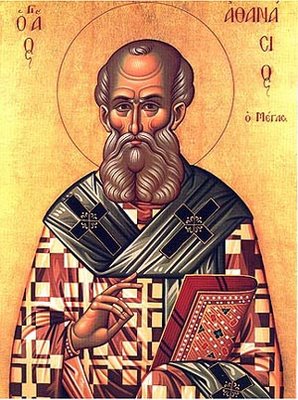Epiphany
When I was 16, I started attending a Southern Baptist church in my hometown. I had been invited by some friends at school, and it seemed like a nice thing to do, this "going to church." My grandparents had taken me to religious services periodically when I was younger, and I always liked to read their Bible Story books. I think I'd gone to a couple of different churches previously - perhaps for a month at a time with friends who weren't nearly as interested as I was in the whole deal.
I attended Sunday morning worship for perhaps six months, and decided I wanted to be a Christian and follow Jesus. I knew that it would mean a particularly different ethos for how I would spend my teen years and live my adult life. I'd thought about that, and I was willing to open myself up to that because I wanted to be Jesus' disciple. At no point (by the way), did I think about hell and how I wanted to avoid it, and how if I didn't submit to a 'sinner's prayer' and baptism, I would surely suffer it.
Nobody had ever explained the Christian faith to me in that way before, and it would be many months before I met anyone who did. I eventually met some other Christians in my high school who talked about being afraid of going to hell, and how all these classmates were going to hell, and I just thought it was the strangest, and perhaps the meanest thing, I'd ever heard. What denomination were they, I wondered?
I was glad that we baptists weren't that way.But this is beside the point.
I decided that I wanted to
follow Jesus. As many of you will know, many evangelical churches practice the tradition of the "altar call" or "invitation," at which point non-Christians or nominal believers are invited to come and tell the preacher for the first time that they believe in Jesus, or wish to "re-dedicate" their lives to Jesus and resume regular church attendance. When I decided to partipate in this tradition, I had no clear notion of what one did, exactly. I walked down the aisle, and I think I told the minister something like, "I want to be a Christian."
He asked me if I'd accepted Jesus Christ as my
personal Lord and Savior. I didn't hear him properly, and for some reason felt strange asking him to repeat it, so I just said "yes." I think I only heard the last words, and thought something like, "well, of course he's the Lord and Savior, and if I didn't think so, I wouldn't still be hanging around. I had not, in any way that I was aware of, "accepted" Jesus to be "my" personal Lord and Savior, but had come to trust him and wanted to act upon that trust by committing my life to him and his Christian way. Nor did I pray any 'sinner's prayer': a common practice in American evangelical or fundamentalist churches that involves verbally acknowledging to God one's sorry and condemned state as a sinner, affirming propositionally that Jesus can in some fashion "save" me from said condemnation, and then informing other Christians that this transaction has occurred.
I was baptized by immersion three days later, in the name of the Father, and the Son, and of the Holy Spirit, amen.
About three weeks after this, it occurred to me in a conversation with a friend that perhaps I should have prayed this 'sinner's prayer.' That night, I retired to my room and directed my attention to the ceiling and said, "God, I probably should have said this before, but I do know that I'm a sinner, and I do think that you save sinners. So, um, would you save me from my sin? I mean, not that I think you haven't already, but just in case you hadn't, and I'm supposed to ask first, would you please? Okay, so I think we're cool now. I mean, I hope so."
Amen.
I have never told anyone that I prayed a 'sinner's prayer' at any point in time, whether at the time of, or three week's after my public profession and baptism.
So here's the thorny pastoral issue: if I were in your church and part of your life (maybe I am, after all) and I asked you,
1. When was I saved / When did I become a Christian?
2. Why?











